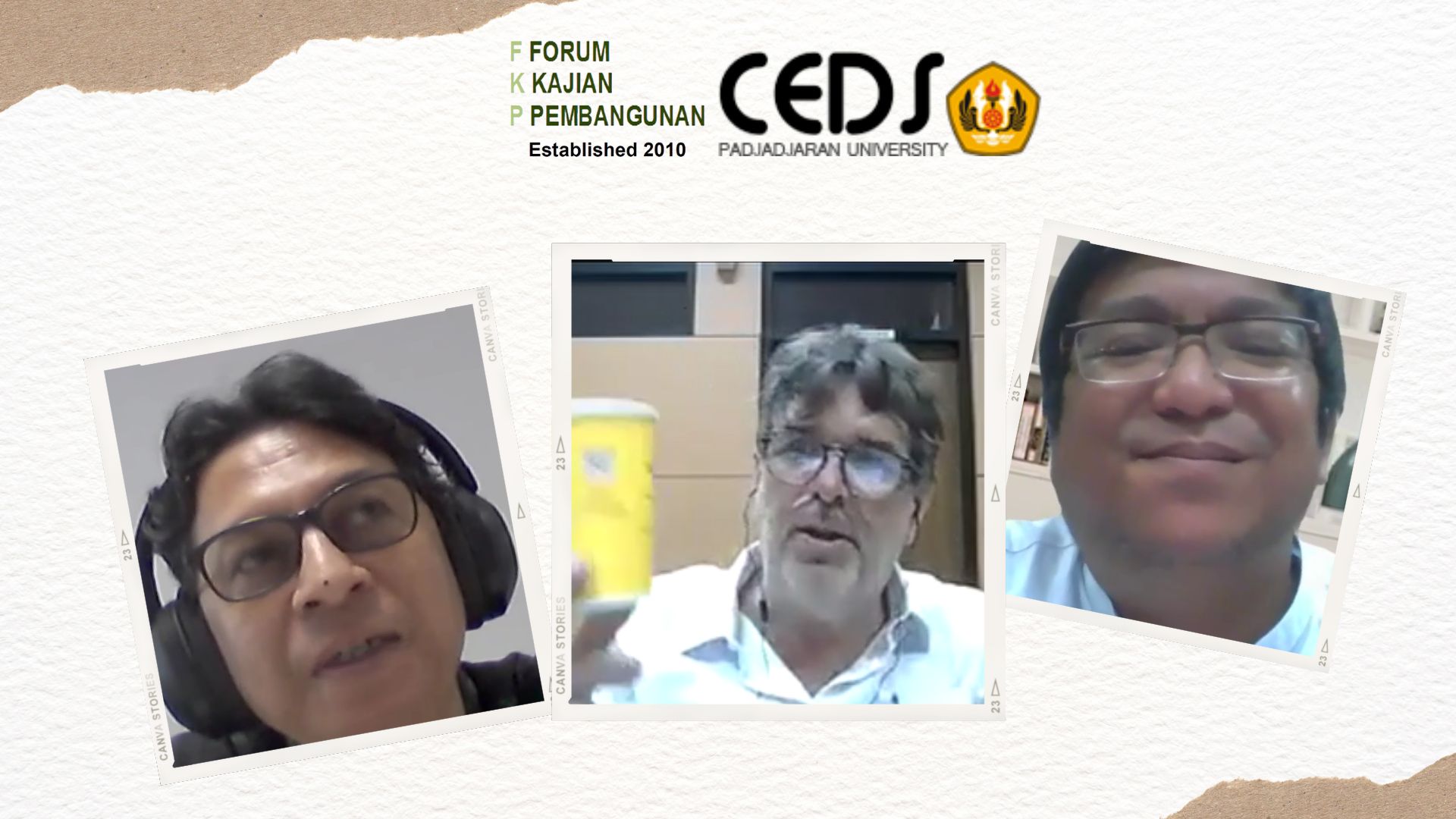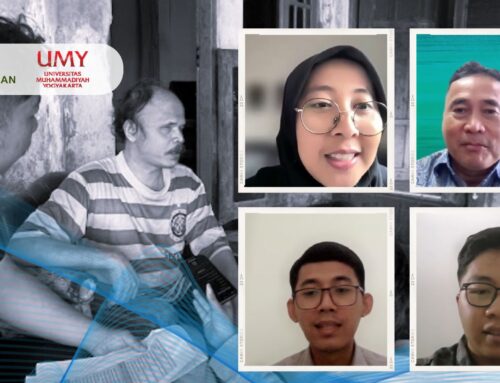FKP hosted by Center for Economics and Development Studies Padjadjaran University (CEDS UNPAD) Thursday November 28th, 2024 with Professor Arnold Tukker (Institute for Environmental Sciences, Leiden University), Viktor Pirmana, PhD (Faculty of Economics and Business Universitas Padjadjaran/FEB UNPAD) with moderator Maxensius Trisambodo, Ph.D (National Research and Innovation Agency/BRIN).
Balancing economic growth and environmental sustainability is a significant challenge for Indonesia, which must lift millions out of poverty while addressing rising CO₂ emissions. As the country industrializes, it faces the critical task of ensuring growth doesn’t come at the expense of environmental integrity. Indonesia’s reliance on coal and its expanding industrial sectors contribute to increasing emissions and environmental degradation. Industrial Ecology (IE) offers a valuable framework by optimizing resource use, reducing waste, and promoting circular systems that minimize environmental impact. This approach can help Indonesia and other emerging economies achieve low-carbon growth while protecting natural resources. These issues were explored at the FKP seminar hosted by CEDS UNPAD, where Professor Arnold Tukker and Dr. Viktor Pirmana discussed how industrial ecology could guide Indonesia towards a sustainable, low-carbon future.
Professor Arnold Tukker delivered a comprehensive introduction to IE as a crucial framework for achieving a sustainable industrial future. He explained that IE integrates environmental considerations into industrial processes to maximize efficiency and minimize environmental impacts. Tukker emphasized key tools used in IE, such as Material Flow Analysis (MFA), Life Cycle Assessment (LCA), and Environmental Input-Output Analysis (EIOA). These tools enable industries to track material, energy, and waste flows, offering critical insights into resource consumption, waste generation, and overall environmental effects. These methods identify areas for improvement, laying the groundwork for the creation of circular economies, where waste from one process can serve as an input for another, thereby reducing environmental harm and promoting sustainability.
A central theme in Tukker’s presentation was the Doughnut Economy model, which seeks to balance environmental sustainability with social equity. This model advocates for meeting essential social needs, such as health, education, and equality, within the ecological limits of the planet. Tukker argued that adopting this approach could help guide Indonesia’s industrial development, ensuring that economic growth does not come at the expense of the environment. He emphasized that leveraging Industrial Ecology principles could enhance Indonesia’s industrial competitiveness while promoting inclusive growth and reducing environmental degradation. This framework is particularly pertinent for Indonesia, a country rich in natural resources but facing significant challenges in ensuring its industrial growth is both economically and environmentally sustainable. By incorporating IE tools and the Doughnut Economy model, Indonesia can create a more balanced and sustainable path forward in its industrial development. For those interested in exploring these concepts further the 12th International Conference on Industrial Ecology (ISEI) will be held in Singapore from July 1-4, 2025 Abstract submissions are due by December 30, 2024. This conference will provide an opportunity to delve deeper into key IE tools and models like the Doughnut Economy, offering valuable insights into promoting sustainable and equitable industrial practices globally.
Dr. Viktor Pirmana emphasized the decoupling of CO₂ emissions from GDP growth, which refers to the ability of an economy to continue growing without a corresponding increase in carbon emissions. He discussed the challenges and opportunities in this area, focusing on the structural transitions needed to achieve low-carbon growth in Asia. For instance, Dr. Pirmana proposed a shift toward clean energy technologies, energy efficiency, and the promotion of sustainable industries. He also provided a detailed analysis of the net GDP benefits that come from low-carbon transitions, showing that while initial investments in green technologies and policies are high, the long-term benefit such as avoided damages from extreme weather and chronic environmental risks significantly outweigh these costs.
He further discussed sectoral environmental and economic efficiency and identified key industries in Asia that have the highest potential for reducing emissions while maintaining or even enhancing economic output. Dr. Pirmana emphasized that this requires substantial investments in technology, energy diversification, and structural reforms in key sectors like transportation, manufacturing, and energy. His insights provided a compelling argument for why countries like Indonesia must prioritize sustainable development policies and make investments in green technologies if they are to achieve long-term prosperity without compromising the health of the planet.
The seminar concluded with an engaging Q&A session, where participants discussed practical steps for implementing the ideas shared by the speakers. Professor Atien Priyanti (BRIN) addressed concerns about the economic feasibility of large-scale investments in clean technologies, especially for small and medium-sized enterprises (SMEs), which may struggle with high initial costs. Dr. Pirmana explained that while the upfront costs are high, the long-term economic benefits, particularly from avoided climate damages, far outweigh these costs. Another important question focused on the viability of coal gasification in Indonesia’s energy transition. Professor Tukker expressed skepticism about relying on coal, advocating instead for renewable energy sources such as solar power and biomass, which he argued offer more sustainable and cost-effective solutions in the long run. Overall, the discussions highlighted the need for systemic change, collaboration, and policy-driven incentives to support Indonesia’s shift toward a low-carbon economy.
This event was attended by 49 participants via Zoom webinar and 31 participants via Instagram Live Streaming.






Leave A Comment